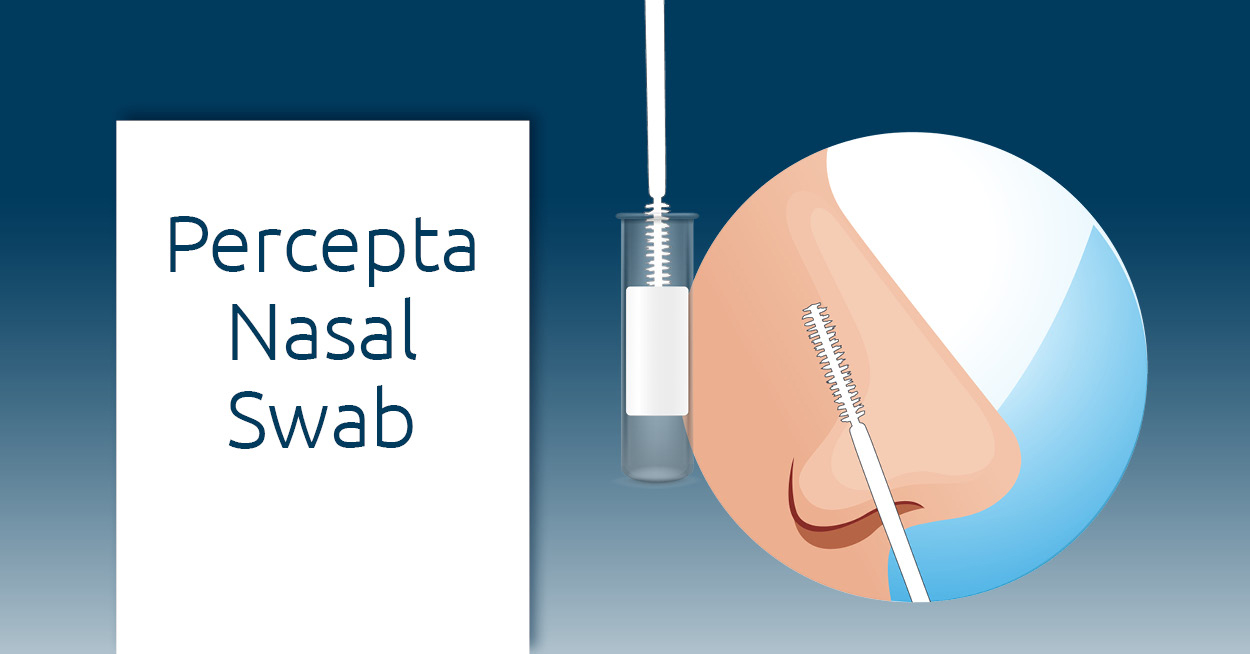Aurora BayCare Medical Center in Green Bay, Wisconsin, is the first site in the state to study a new genomic test’s ability to identify patients’ risk for lung cancer following detection of a suspicious lung nodule.
The clinical trial, known as NIGHTINGALE, will evaluate the impact the nasal swab test, called Percepta Nasal Swab, has on the care of patients with lung nodules found on imaging exams. The test is designed to detect genomic biomarkers that point to a patient being high-, moderate- or low-risk for having lung cancer.
“Ultimately, we want to see if use of the nasal swab results in fewer invasive follow-up procedures for those patients who are found to be low-risk for lung cancer and whether people found to be high-risk are more likely to receive the appropriate therapy early on in their care,” said pulmonologist Raul Mendoza-Ayala, MD, Advocate Aurora Research Institute’s principal investigator for the study.
Lung cancer is the leading cause of cancer death and the second most common cancer in the U.S., according to the Centers for Disease Control and Prevention.
For high-risk patients – those who have smoked the equivalent of at least a pack a day for 20 years, currently smoke or have quit within the past 15 years, and are between ages 50 and 80 – doctors typically advise yearly lung cancer screening using low-dose CT, the standard screening method in the U.S.
“Despite the enormous health benefits of early detection, very few high-risk patients seek yearly lung cancer screening, and the vast majority of lung nodules are only found incidentally,” Dr. Mendoza-Ayala said.
What’s more, low-dose CT has a high rate of false-positive diagnoses of lung nodules, and the majority of nodules turn out to be benign.
“This results in patients potentially enduring unnecessary further testing and invasive procedures,” said Laura Wrona, MSN, Director of the Research Institute’s Center of Excellence in Cardiovascular Research. “It is clear researchers need to find other methods of identifying our patients’ risks of lung cancer.”
The NIGHTINGALE clinical trial will enroll people who have been diagnosed with a lung nodule, either incidentally or during a lung cancer screening. All participants will receive the nasal swab. If a participant is assigned to the test group, their doctor will receive the results of the genetic test to share with the participant and help guide the course of care. If a participant is assigned to the control group, their doctor will not be told the results of the swab and will instead provide the standard of care to determine whether the lung nodule is cancerous.
The study, “NIGHTINGALE: Clinical Utility of Management of Patients with CT and LDCT identified pulmonary nodules using the Percepta Nasal Swab Classifier,” is sponsored by Veracyte, Inc., manufacturer of the nasal swab test.
To learn more about our research, visit aah.org/research.
